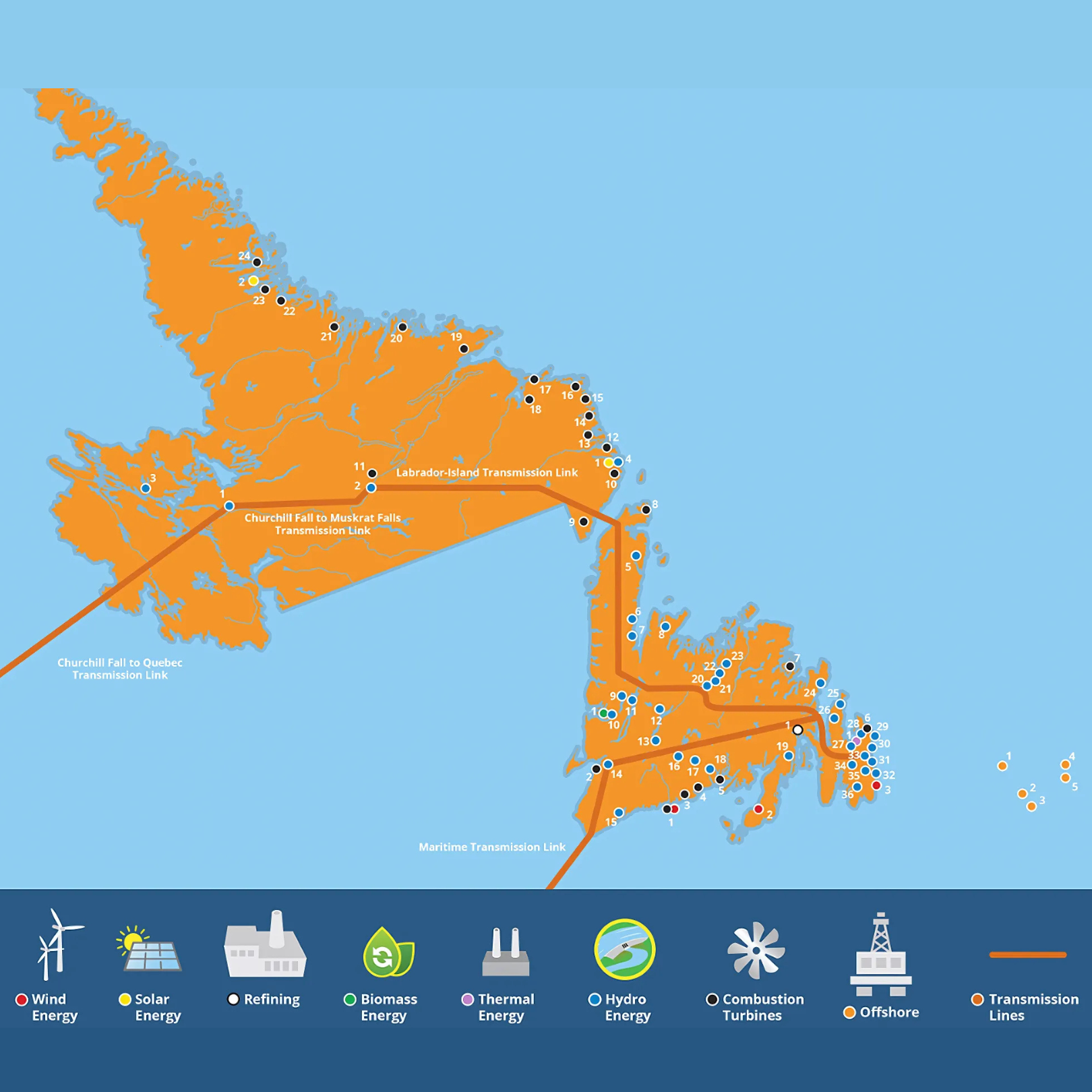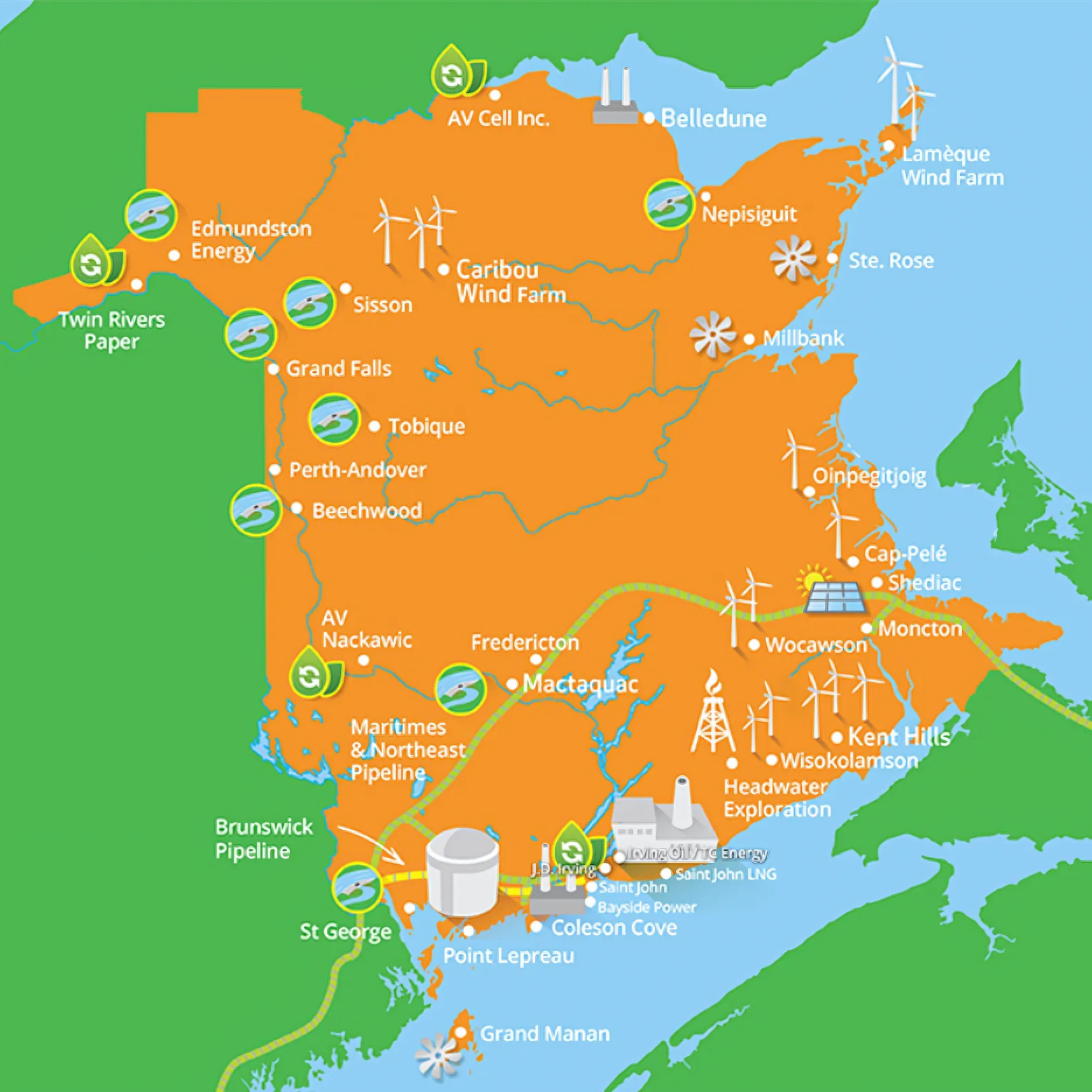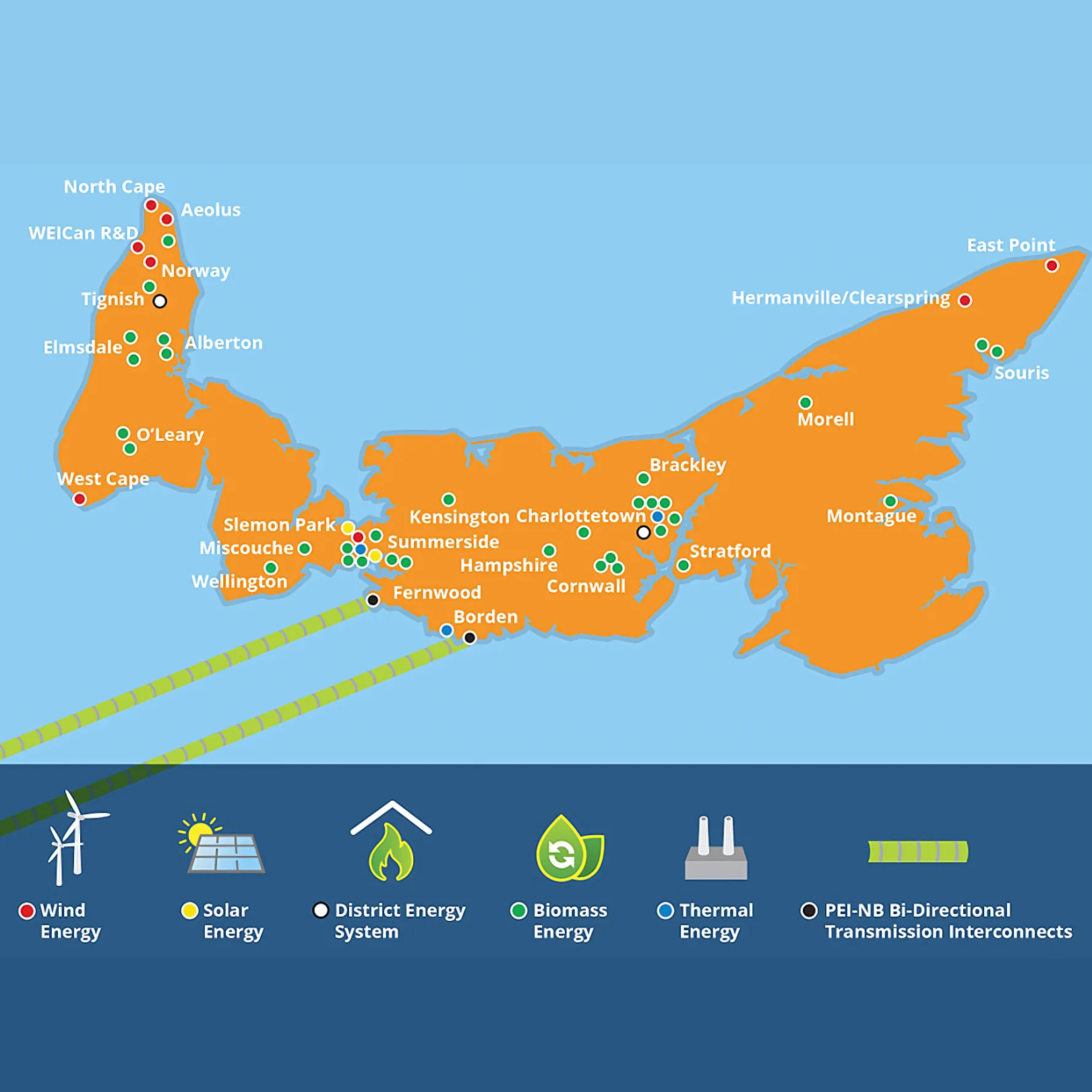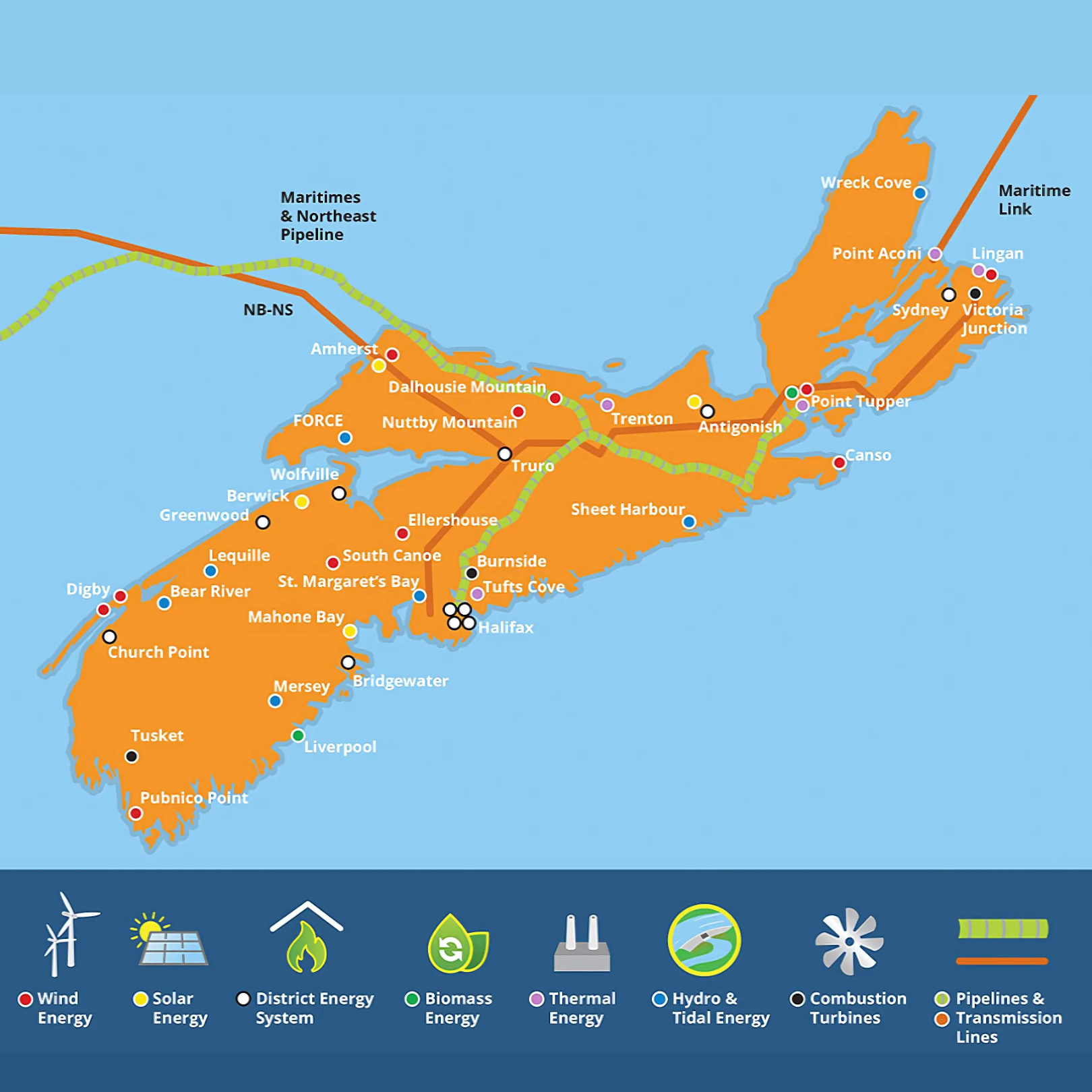Energy security is something most Atlantic Canadians prioritize, but it is a complex target for utilities and governments to achieve.
What is energy security?
Energy security can mean different things to different people in different contexts. In its broadest sense, energy security means energy is available when it is needed within a certain geographic boundary, such as a province or country. To be energy secure requires addressing risks associated with generating, distributing, purchasing and consuming energy.
What are the key aspects of security?
There are many different aspects of energy security that energy companies and governments must address to ensure energy is available when customers need it.
These aspects include:
- Availability: there must be enough supply of energy to meet current and immediate future needs. Availability considerations can include supply of energy products such as crude oil for refining or using natural gas to generate electricity when energy from wind isn’t available, for examples. Enough equipment and staff must also be available to build, repair and operate energy systems;
- Affordability: energy costs must be and sustainable for residential, commercial and industrial consumers. For example, NB Power is required to deliver reliable, sustainable energy that is the “least-cost service.”
- Accessibility: energy must be to all residents and businesses, regardless of the time of year, where they live or operate, and how much energy they need. For example, even remote communities need electricity service;
- Environmental Acceptability: governments at all levels must balance the impacts and benefits of energy extraction, generation, transmission or transportation, and consumption to minimize the impacts to the environment and climate;
- Resilience: energy systems must be robust and flexible to withstand disruptions, whether created by natural events or humans. Examples include ensuring electrical grids and pipelines can withstand storms or cyber attacks; and,
- Diversification: a province, utility, business or resident shouldn’t rely on any single type or source of energy if they can avoid it. For example, it is helpful for a homeowner to have another heating source in case their electricity goes out. For an electrical utility, it is important to not rely solely on one source of generation, such as natural gas if prices increase, or hydroelectric dams if there is a long drought.
Why is energy security important?
Energy security is critical to avoiding social and economic disruptions. Energy security helps maintain a nation where people can heat or cool their homes, travel and communicate freely, prepare food, and access important services, like healthcare. It helps preserve economic activity and enables growth by powering businesses, and the movement of goods and services.
Are there any energy security challenges in Atlantic Canada?
There are several energy security challenges that energy companies, utilities and governments across the region continuously work to address.
Which energy security considerations need to be addressed in Atlantic Canada’s net-zero future?
There are many challenges Atlantic Canada’s energy companies, utilities and governments must address to maintain energy security in the transition to net-zero.
For example, as the region moves to more intermittent sources with wind and solar to meet decarbonization goals, generation sources will become more intermittent and less reliable. At the same time, residents and businesses will use and rely on more electricity. It is critical for electrical utilities to maintain enough backup generation and storage to keep the supply of energy reliable, which can be costly for a jurisdiction to develop. This will also require adding more inter-regional transmission and more resilient distribution to customers (storm hardening).
For fossil fuels, it is reasonable to expect that natural gas will continue to be needed in the medium- to long-term, so reliable supplies of natural gas will be important. Producing and importing more clean fuels for Atlantic Canada can also help reduce the demand for natural gas and other conventional fuels, which have higher emissions.
Importantly, energy security efforts will require partnerships and innovation, including the government’s involvement, with lower-cost options to achieve the regulated transition to clean energy, while ensuring Atlantic Canadian ratepayers can continue to afford the energy they need.
Resources:
- Atlantica’s Fuel for Thought: Energy Security 101: How are electrical utilities managing energy security in Atlantic Canada?
- Natural Resources Canada: Energy Infrastructure Security Division
- United States Department of Energy: Energy Reliability and Resilience
- Atlantica Centre for Energy: Energy Asset Maps
- Atlantica Centre for Energy: Energy Trade 101
- Atlantica Centre for Energy: Electrical Grid 101
- Atlantica Centre for Energy: Natural Gas Grid 101
- Nova Scotia Power: Reliability
- NB Power: Smart Grid and Cybersecurity
- IEA Video: Energy Security and Carbon Emissions





